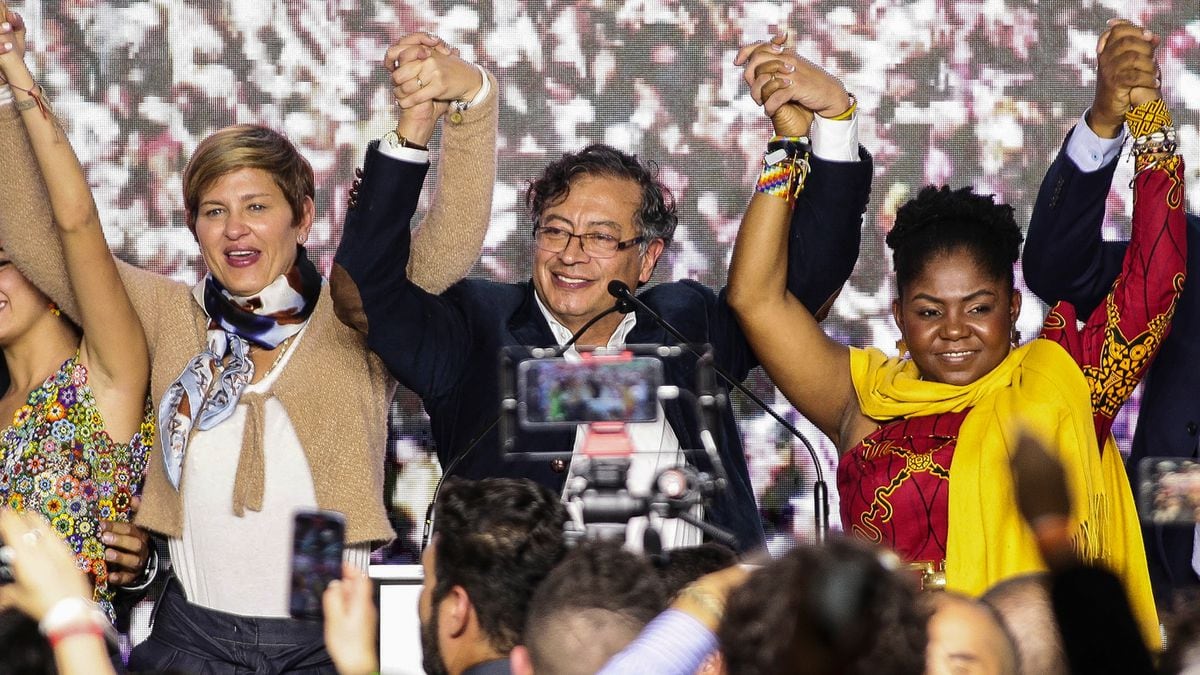With the election of Gustavo Petro, Colombia has just broken several of its most deeply rooted customs.
The most important: for the first time in its republican history, my country will have a leftist government.
The closest thing dated back to the 1940s, when Alfonso López Pumarejo's second term ended;
But later, with the guerrillas that emerged in the countryside under the ideological umbrella of the Cuban Revolution, everything was distorted, because the war – terrorism, kidnappings, the millions of displaced people – made it impossible for six decades to speak normally of the democratic left. .
Another of the precedents that these elections destroyed was the abstention of Colombians, whose extremely high numbers had always allowed us to fear a rupture between democracy and the people.
Never had so many voted in Colombia,
and never – this is even more important – had a president been elected with so many votes.
This is good, of course, but everything has a dark side in current politics: because the enormous influx of voters in these elections was also due to the impression of an imminent catastrophe that permeated the environment in recent weeks.
The two extremes sold the idea that the victory of the opposite would mean the hopeless collapse of the country.
And that's not so good.
The two extremes sold the idea that the victory of the opposite would mean the hopeless collapse of the country.
And that's not so good.
The two extremes sold the idea that the victory of the opposite would mean the hopeless collapse of the country.
And that's not so good.
Well, this is the citizen climate that Petro will find from now until he assumes the presidency, on August 7 next.
Colombia today is a fatally divided country, confronted in irreconcilable ways and tremendously tense, and part of those confrontations and those divisions have been caused by him, who for many years has played at polarization and sectarianism, and has won with justice fame of intransigent and authoritarian.
And in this campaign, in particular, Petro looked the other way (and this is putting it fondly) as his most rogue henchmen mounted a real dirty war against his political contenders.
Well, now the president-elect has the intolerably difficult task of healing wounds, of lowering his temperature on the spot,
to close the cracks that years of tensions have opened between citizens;
he must convince Colombians – and do it quickly: for me, it is a matter of days – that he is capable of governing for everyone, not only for those who voted for him, and that he is capable of listening and understanding and even reassuring those who they are afraid of him, although sometimes they are afraid of him for having been, he too, a victim of years of black propaganda.
From here to his possession, Petro has a task that he has never been good at: reconciling.
For the good of all, and despite the fact that I have always been critical of him, I hope he succeeds.
Well, in his movement there are very valuable people and a real government program, committed to the implementation of the Peace Accords and the construction of a political country that is more like the real country.
I hope he succeeds, as I said in a past column, because the failure of the next government would be the failure of all, not just those who elected him.
The good news is that the Petro that won the elections is not the same that won the first round: in these weeks moderate figures have joined his party that come from other political places, arouse the respect of many and allow us to think of something that We Colombians have never known how to do: negotiate.
On that will depend, I fear, the success of his government: on his willingness to yield,
surround yourself with those who think differently, listen to others and sometimes agree with them.
It sounds easy, but sometimes it seems like we haven't done it in centuries.
Subscribe here to the EL PAÍS newsletter on Colombia and receive all the key information on the country's current affairs.

